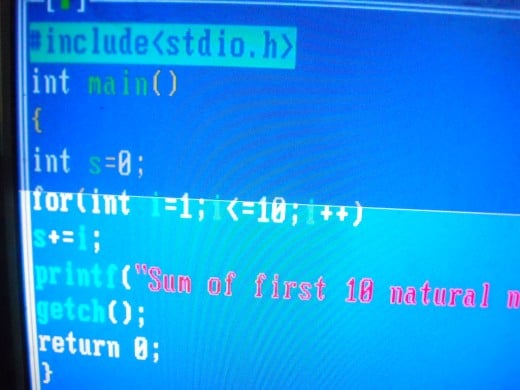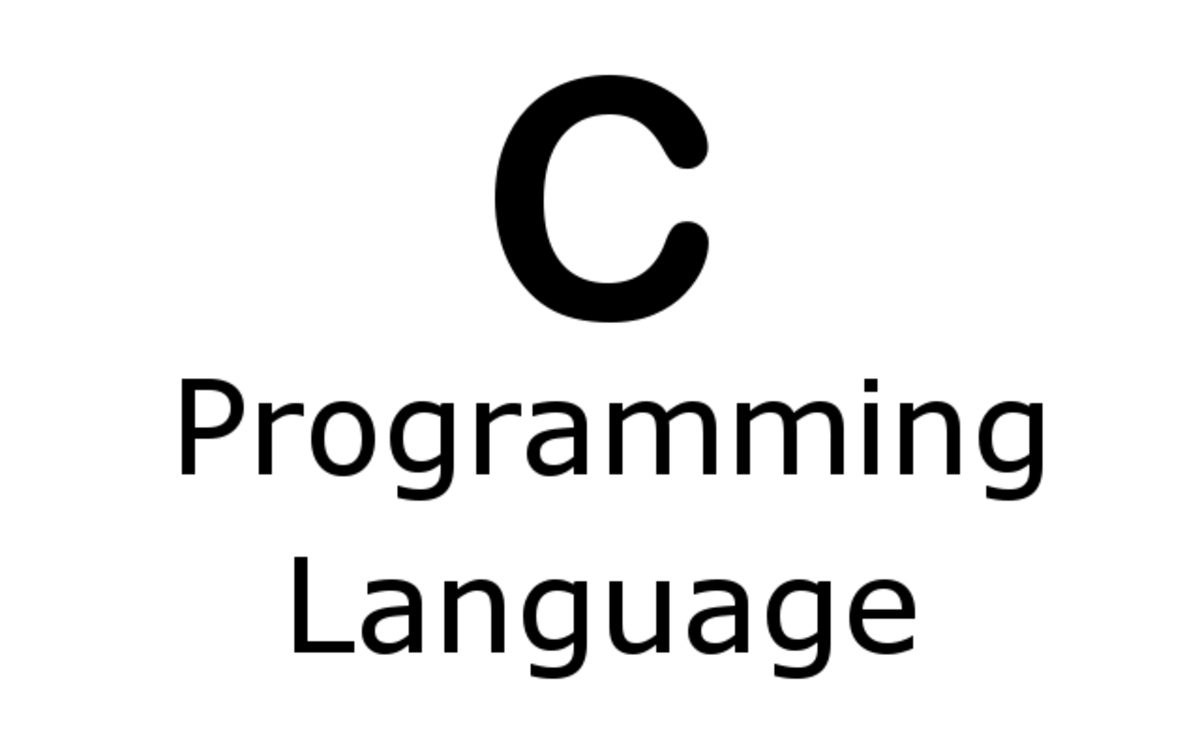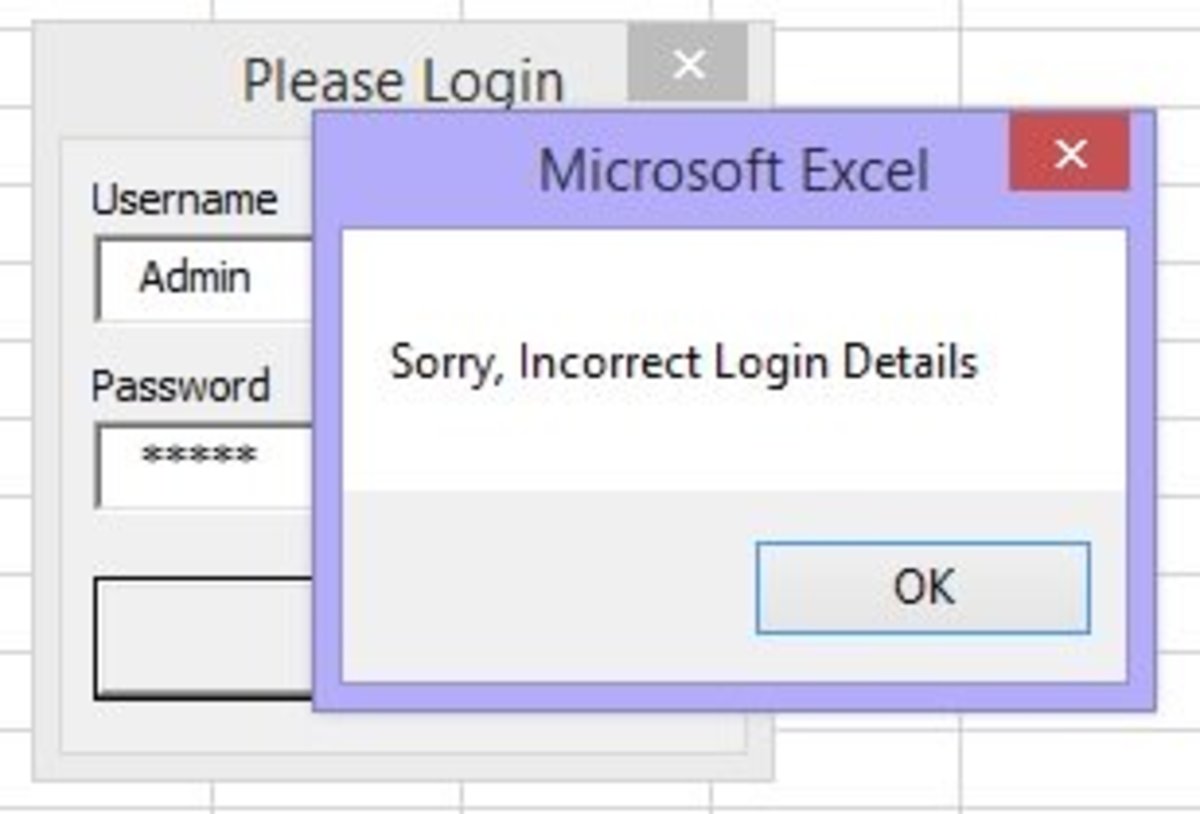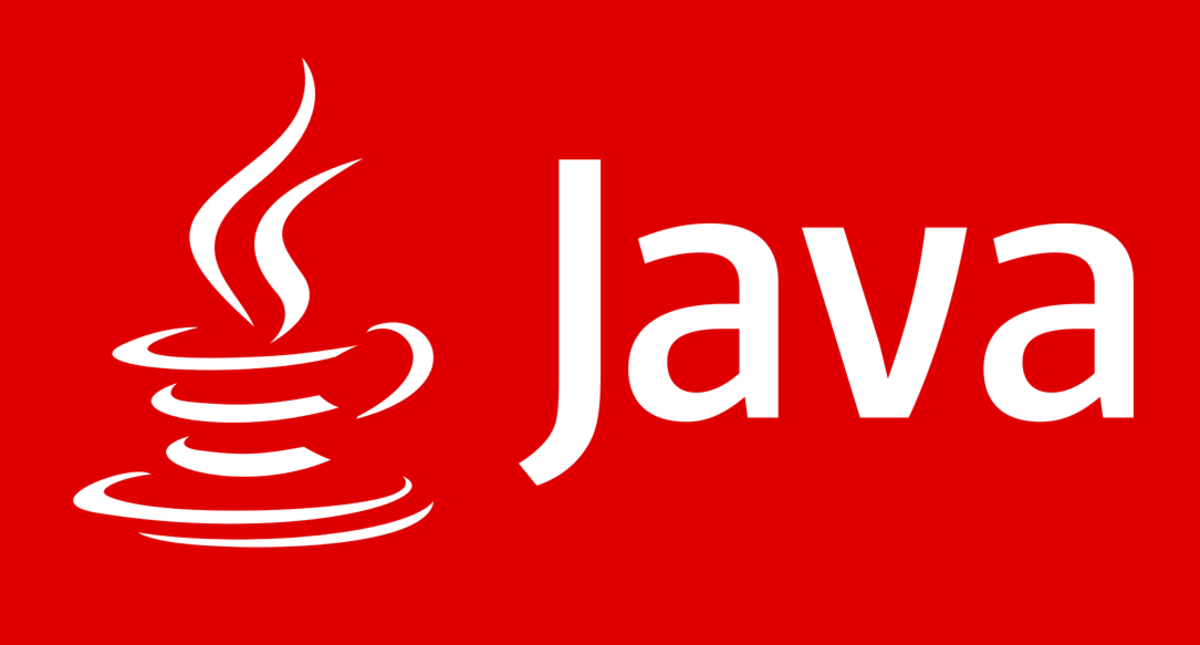- HubPages»
- Technology»
- Computers & Software»
- Computer Science & Programming
About C Programming; An Overview

Why C has gained this much popularity? It is its portability that differentiates it from other programming languages. A program written in C in one computer system can be transferred to another with minimal changes. This is why the name ‘C’ is most heard in software industry. Also C has an extensive variety of operators and data types designed specifically to offer you a greater range of options in solving a multitude of problems. C has greatly influenced many other programming languages, most notably C++, the successor of C. Once you get familiarized with it, you may rather enjoy programming for your own DIY projects.
C is a case-sensitive middle level programming language. It is a structured programming language that has scope for lexical variables. Also it performs recursion when some operation has to be repeated while a condition is true. In C, all executable codes are contained within subroutines, which are called 'functions'. There are two ways of passing parameters in a function in C; pass by value and pass by reference. C program source text is free-format and uses a semicolon as a statement terminator. Curly braces are put for grouping the functions.
A simple program
Look at a “welcome” program in C.
#include <stdio.h>
Int main()
{
printf(“Welcome my dear friend!\n”);
getch();
return 0;
}
C syntax
You might be wondering what this “#include<stdio.h>” mean. It is the header that contains the C library functions that you use in your program. The pre-processor directive ‘#include’ tells the compiler to get the code for the functions specified in your program. Here, the header ‘stdio.h’ contains the functions printf and getch.
Every C program begins with a function called 'main'. This function is called first whenever the program executes. From main, you can call other functions included in the program. The type that the function returns can be specified at the time of the function call. Here int main() returns an integer value.
The printf function is the standard C way of displaying output on the screen. The literal inside the quotes becomes the output here. The '\n' is a line feed operator, actually treated as a single character that stands for a newline. Even if it’s written inside the quotes, the C compiler would treat it as a command. The next function used here is getch. It waits for the user to enter a single character and to press enter to read. As many C compilers close the output window before the user can see, this function is included in almost all C programs. This command keeps that window from closing as the program waits for you to enter a character in the end.
C program to find the sum of first 10 natural numbers
#include <stdio.h>
int main()
{
int i=1; s=0;
for(i=1;i<=10;i++)
s+=i;
printf("Sum of first 10 natural numbers=%d",s);
getch();
return 0;
}
This program calculates the sum of first 10 natural numbers. This is done by declaring a variable ‘s’of type integer initially and by the process of iterating inside a loop. The second variable ‘i’ is declared during run time and has been incremented by 1 using the ‘++’ operator. This variable gets added to ‘s’ each time the compiler encounters the ‘for’ loop. When the condition becomes false, that is when the value of ‘i’ becomes 11, the loop is exited and the variable ‘s’ contains the final answer.
‘%d’ is the format specifier for printing integer values.
Characteristics of C
- Minimization of redundant code
- Portability
- Use of pointers for better programming efficiency
- Modularity of files via static and extern attributes
- Delegation to library routines for performing complex functions
Please vote!
Is C programming easy for you?
- C program code for linked list manipulations
Linked lists are data structures that are user friendly. They not only save memory space, but also reduce the complexity in the manipulation of list elements such as insertion or deletion. - C program code for queue data structure
Elements in a queue are served in the form of First-In-First-Out manner always. A queue data structure adds data to the rear end called enqueue and removes data from the front end called dequeue. In Computer Science, a queue performs the functions of - How to learn programming; 5 best resources for a beg...
Learning programming is accompanied by the resources books, programming languages, source codes, thinking power and desire. These resources have been discussed in detail in this hub.








